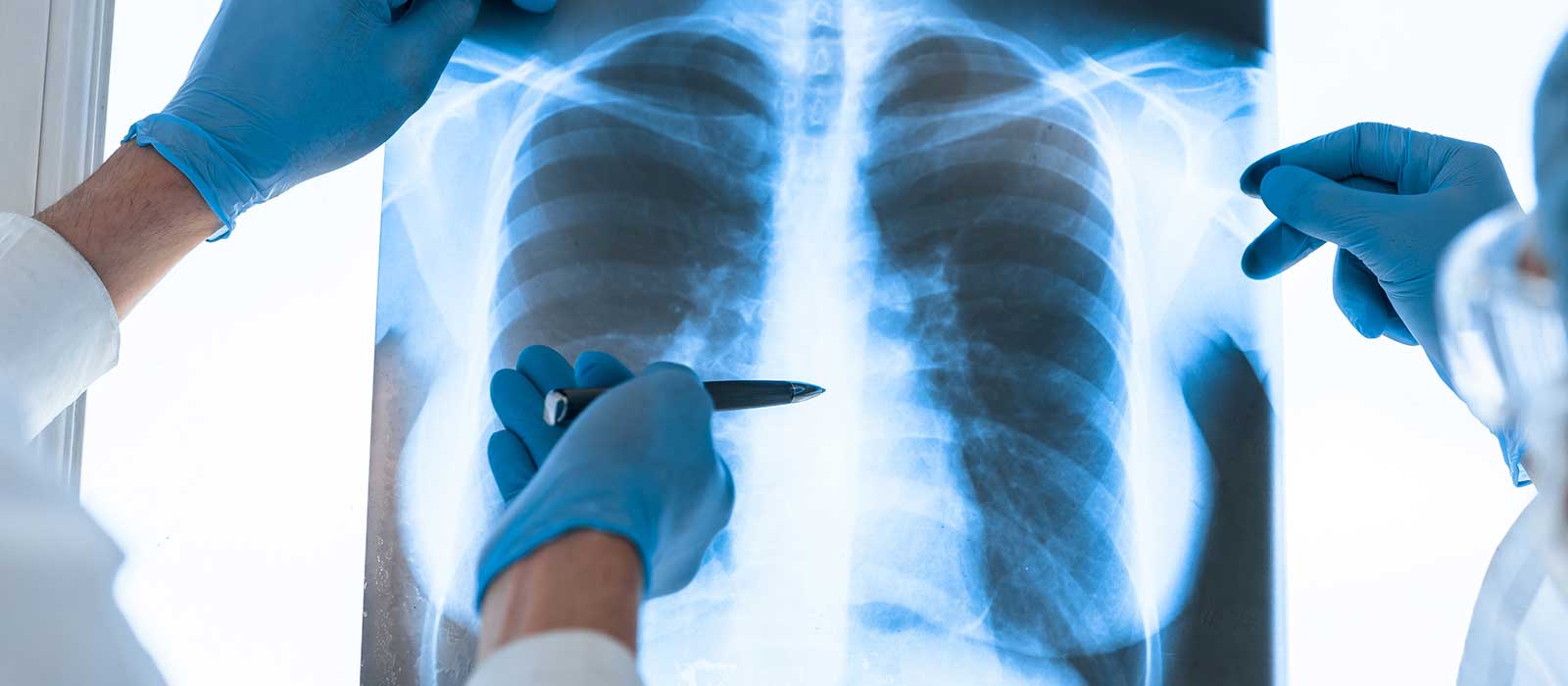Tackling the science behind the long-term effects of COVID-19
Meet the UBC researchers investigating the long-term impacts of the disease
Case counts of COVID-19 in Canada are falling, the vaccine rollout is accelerating, and public health restrictions are easing across the country. Meanwhile, thousands of Canadians are still struggling with long-term complications months after contracting the virus.
Known as ‘long-haulers,’ those with post-acute COVID-19 suffer from lingering, and in some cases, life-altering symptoms, ranging from extreme fatigue, shortness of breath and heart palpitations to brain fog and depression.
Meet some of the UBC faculty of medicine researchers who are working with our partners to tackle the long-term effects of COVID-19 in an effort to find answers and improve patient lives.
Dr. Anita Palepu on the full spectrum of disease
Dr. Anita Palepu, UBC professor and head of the department of medicine, is the Vancouver site lead of a national study, CANCOV, which is evaluating the full spectrum of short and long-term outcomes following COVID-19.
“Initially, we thought of COVID-19 as a respiratory illness, but what we’ve learned is that this is a multi-system disease, affecting multiple organs—from the brain, heart, kidneys and liver to the gastrointestinal tract,” says Dr. Palepu.
The study—also being conducted at sites in Quebec, Ontario and Alberta—is examining the myriad of health consequences of COVID-19 among patients as well as their family caregivers. A key focus of the research is determining the clinical risk factors, as well as the pace of recovery across the spectrum of disease.
— Dr. Anita Palepu
“There’s growing indication that once vaccinated, people with post-acute COVID-19 syndrome can show improvement of symptoms over time,” says Dr. Palepu. “This is certainly an area of interest and one that we’ll be exploring further.”
In addition to her role as site lead, Dr. Palepu, who also serves as the head of the department of medicine at Providence Health Care, is among a wider team of experts helping to oversee patient-oriented research and clinical activities underway at St. Paul’s Hospital’s post-COVID-19 recovery clinic—one of four Lower Mainland clinics providing specialized care and follow-up for patients suffering from longer-term symptoms.
“The research priorities are guided by the researchers, with the partnership of the patients,” says Dr. Palepu.

Dr. Chris Carlsten on lung health
When COVID-19 emerged, Dr. Chris Carlsten, UBC professor and head of the division of respiratory medicine, and his team immediately began tracking patients discharged from hospital.
“At the time, very little was known about the lingering lung problems facing survivors and what care they would need,” says Dr. Carlsten.
As part of a two-year study examining respiratory outcomes, the researchers have continued to follow and monitor COVID-19 patients, capturing CT scans and routinely testing their lung function.
Early findings, published last fall, revealed that three-quarters of patients who were hospitalized with COVID-19 had symptoms months later. CT scans showed one-in-five had lung scarring—an indicator of future compromised lung function, says Dr. Carlsten.
Today, emerging findings reveal a striking new observation: while patients are beginning to show signs of improvement based on their test results and imaging, their reported symptoms are not improving proportionately.
In 40-50 per cent of cases, Dr. Carlsten says patients are reporting shortness of breath three to six months out, despite objective improvements observed through testing.
“Breathing is a necessity of life and when you feel like you can’t get enough air, it’s fundamentally concerning,” says Dr. Carlsten. “By identifying the respiratory challenges patients continue to face, our research will be able to inform and guide the care they need moving forward.”
Dr. Teresa Liu-Ambrose on brain health
Dr. Teresa Liu-Ambrose, UBC professor in the department of physical therapy, is known internationally for her work on healthy aging—and the aging brain.
When the pandemic hit, she quickly turned her attention to investigating the long-term impacts of the novel virus on patient cognition and brain function.
“Since the beginning of the pandemic, there has been consistent evidence that COVID-19 impacts the brain—ranging from infection to stroke to delirium,” says Dr. Liu-Ambrose, director of UBC’s Aging, Mobility and Cognitive Neuroscience Laboratory.
Collaborating with researchers from across the nation, Dr. Liu Ambrose is co-leading a national study that includes eight research sites in Canada.
Together, they are measuring cognitive function and acquiring brain scans from Canadians aged 55 to 80 years old, who are enrolled in the Canadian Longitudinal Study on Aging. The researchers will then compare the function, brain structure and brain function of adults with suspected or confirmed COVID-19 to those who are symptom-free or who have tested negative.
According to Dr. Liu-Ambrose, recent evidence suggests some of the impacts of COVID-19 on the brain are more subtle, including silent strokes, which can contribute to risk of developing dementia.
— Dr. Teresa Liu-Ambrose
“Despite their name, silent strokes have significant impact on our cognition, and generally increase in severity over time,” she says.
“By advancing our understanding of the more subtle impacts of COVID-19 on the brain and cognition, we can implement early screening and interventions, which will ultimately improve outcomes for Canadians,” she adds.

Dr. Lakshmi Yatham on mental health
Dr. Lakshmi Yatham, UBC professor and head of the department of psychiatry, is involved in a number of studies exploring the psychological toll of the pandemic.
“There is emerging research showing that if you are diagnosed with COVID-19, your chance of developing symptoms of a mental disorder—ranging from depression and anxiety through to post-traumatic stress disorder—is almost as high as 40 per cent,” says Dr. Yatham.
According to Dr. Yatham, there are a whole host of factors behind this increased risk, including stress associated with fear of the unknown and diagnosis of a novel disease, isolation from social supports during recovery, and trauma stemming from life-saving procedures, like being placed on a ventilator.
Inflammation caused by the disease can also play a role.
“Any time there is inflammation in the body, there’s an increased risk of developing psychiatric and neurological issues,” says Dr. Yatham.
In partnership with Dr. Daniel Vigo from the department of psychiatry and Dr. Raymond Ng from the School of Biomedical Engineering, the research team is using machine learning algorithms and linking BC population data, COVID-19 testing data and health administration data to identify clinical and demographic features that predict who is at risk of developing mental disorders.
— Dr. Lakshmi Yatham
“Ultimately, we hope to have a system that helps us to identify who is at increased risk, which enables us to target these individuals early on to prevent and minimize adverse mental health outcomes,” says Dr. Yatham.
As the regional head of psychiatry for Vancouver Coastal Health and Providence Health and head of the department of psychiatry at UBC, Dr. Yatham has facilitated the establishment of the COVID-19 psychiatry clinic at St. Paul’s Hospital, which provides assessment and treatment for those who have been treated for COVID-19 at Vancouver Coastal Health and Providence Health Care hospitals.
“As we emerge from the pandemic, our social behaviours will return to a new normal, but the mental health effects may take much longer to resolve,” says Dr. Yatham. “That’s why moving forward, it’s so important that we continue to build resilience and deploy early intervention strategies.”
Dr. Yatham is also collaborating with international researchers on COH-FIT, a survey about mental and physical health that is helping researchers around the world determine how mental health services can evolve to meet current needs, and how we can individually cope with anxiety. In addition, he is collaborating with researchers in Australia, the US, New Zealand, the Netherlands and the UK to examine the impact of lockdowns on the mental health of individuals with pre-existing mental disorders.
Share this Story
Published: July 5, 2021




